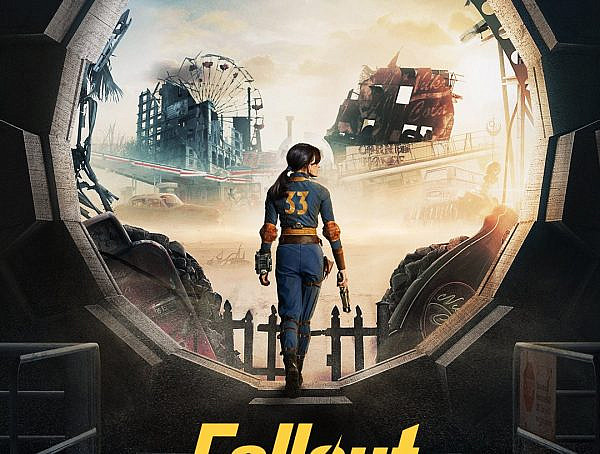How are games related to things such as #Art, #philosophy, maxims and Kant’s Categorical Imperative? #GameDesign #Fallout3
Imagine a post-apocalyptic scenario, where a nuclear holocaust resulting from an all-out war between the Us and China has burned the Earth to ashes. All life is wiped on the whole planet, apart from a small amount of US citizens that now reside in huge underground shelters, called ‘Vaults’. Some years later, certain Vaults have opened their doors to the wasteland, allowing people to try to rebuild a home. The story begins when the Lone Wanderer is born inside Vault 101 – a Vault that was never meant to be reopened, and has to escape and embark on a dangerous quest in search of his father.
This is the background story that’s behind Fallout 3, the first-person shooter role-playing game known to many ardent gamers. Fallout 3 presents the player with situations in which decisions must be made and actions taken – just like most games of this kind, just like in real-life situations. This allows us to think of the game designers as artists as well as moral teachers. Researchers Theresa Claire Devine, William Andrew Presnell and Samuel Miller decided to put the game to a test and determine if the developers managed to fulfill these roles, by examining a particular quest that provides a lot of food for thought: ‘Tranquility Lane’.
However, considering the fact that we’re examining questions of morality, philosophical ideals and thought processes deserve special mention here; for this purpose the researchers chose to put the philosopher Immanuel Kant in the position of the gamer and tried to imagine how he would act based on the choices the game provides. Can Fallout 3 survive his rigorous, thorough ethical theory, the Categorical Imperative?
Before we examine the actual quest, let’s try to put ourselves in the position of Kant and examine his thinking. According to him, the core principals behind actions have to be rational instead of empirical, based on logic rather than intuition. Reason rules the will. We can better understand reason if we examine it in the terms of Duty, which contains the concept of doing something in accordance with a moral law that must be respected. Duty is a driving force both rational and internal and prevails over personal desires. These necessary laws Kant defines as categorical imperatives. A categorical imperative produces duties. Duties are the result of four basic formulations, or prerequisites, according to Kant: the universalization formulation (affirms the form of the law), the humanity formulation (affirms the goal of the law), the autonomy formulation (affirms the authority of the law) and the kingdom of ends formulation (affirms the consequence of the law).
In practice, each of these formulations provides a guideline for moral actions. According to the universalization principle, you action cannot be self-contradictory, which means that it can’t, for example, be for and against the same thing. Moreover, we must think about the possible consequences and the how the world would change – if the change is favorable, then the action can be taken. Similarly, the humanity principle states that the action must have any person involved as an end and not as a means. The autonomy formulation has to do with humans being autonomous and able to act in accordance with their own will, create laws and bind themselves to obey to them without external influences. The law must thus be in accordance with the peoples’ will. Finally, the kingdom of ends principle alludes to the goal of morality and a possible world, free of any immoral actions.
In the Tranquility Lane quest, the player is faced with a dilemma: trapped in a simulation, they have three options: they can either opt to play by the simulation’s master’s rules, and end up torturing and finally killing the people living in the simulation, either activate a program that would also kill the player along with everyone else, or be trapped there eternally. Filtered through Kant’s formulations, all of these options are turned down. The quest is a trap – it requires the player to act, while not giving an option to act. This contradiction raises questions like what would happen if this were a real-life situation? If the player has no option of continuing the game, is this a design flaw? Would it be better if the player was awarded escape for doing nothing? In this sense, the game has failed the morality test. Whereas it sets up the expectation of making moral choices in the beginning, it becomes contradictory in the process. Kant would probably not approve.
The Tranquility Lane quest is only one small example of how games usually play with concepts of morality. Games have very often been described as controversial. Maybe some developers think that it would be a lot simpler to do away with the ‘good’/ ‘bad’ decisions and support that living in a moral world is impossible.
Original Article: http://gac.sagepub.com/content/9/4/277.full.pdf+html
You might also like
More from Game Research Highlights
How do you want to do this? – A look into the therapeutic uses of role-playing games
Can playing RPGs contribute positively to your wellbeing? A recent study aims to find out how RPGs are being used …
Eldritch horrors and tentacles – Defining what “Lovecraftian” is in games
H.P. Lovecrafts legacy lives today in the shared world of Cthulhu Mythos and its iconic monsters. Prema Arasu defines the …
Are Souls Games the Contemporary Myths?
Dom Ford’s Approaching FromSoftware’s Souls Games as Myth reveals the Souls series as a modern mythology where gods fall, desires …
















